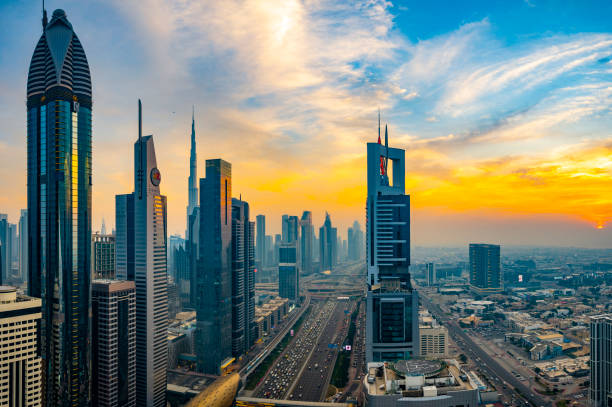A free zone is a specified geographic area within a country where economic activities such as trade, manufacturing, and services receive tax incentives and lowered tariffs to promote business activities and attract foreign investment. These zones are created to stimulate economic growth, encourage entrepreneurship, and create jobs by reducing regulatory bottlenecks and offering attractive benefits to businesses. The concept of free zones has evolved over time, adapting to the dynamic needs of the global economy. This article will delve into what constitutes a free zone, its benefits, challenges, and the process involved in setting up a business within such areas.
Understanding Free Zones
Definition of a Free Zone
Free zones are specially designated areas within a nation that possess special regulatory advantages compared to the national laws. These advantages primarily include exemptions from certain taxes and duties, aimed at fostering trade and investment. Historically, the notion of free trade zones can be traced back to ancient times when port cities provided certain privileges to facilitate trade.
Types of Free Zones
There are several types of free zones, each designed to serve distinct economic purposes:
- Free Trade Zones: These zones are areas where goods can be imported, handled, and re-exported without intervention from customs authorities.
- Export Processing Zones: These zones are aimed at industrial businesses manufacturing products primarily for export markets.
- Special Economic Zones: These are broader areas with economic laws more relaxed than the nation’s other typical laws.
- Freeports: These are zones near shipping ports that facilitate the storage of goods without customs duties until they are moved to a different location.

Key Features of Free Zones
Free zones offer a range of features that make them attractive to businesses:
- Tax Incentives: Reduced or zero taxation on corporate income, imports, and exports.
- Simplified Customs Procedures: Streamlined processes to expedite the movement of goods.
- Infrastructure and Facilities: Availability of state-of-the-art industrial parks, warehouses, and logistical services.
Benefits of Free Zones
Economic Growth
Free zones play a pivotal role in boosting a nation’s economic growth. They attract foreign direct investment (FDI), which in turn creates job opportunities for the local population. The SAIF Zone (Sharjah Airport International Free Zone) in the UAE, for example, has significantly contributed to Sharjah’s economy. Free zones also stimulate local businesses by creating a demand for services and products that support the businesses operating within the zones.
Business Advantages
Operating in a free zone offers numerous advantages to businesses. Companies can benefit from drastically reduced operational costs due to tax incentives and reduced customs duties. Additionally, free zones often provide businesses with the infrastructure needed to facilitate production and trade efficiently. Below is a comparison table highlighting some key advantages of operating within a free zone:
| Feature | Free Zone | Non-Free Zone |
|---|---|---|
| Taxation | Minimal to none | Standard national rates |
| Customs Duties | Reduced or exempted | Standard rates |
| Business Setup Process | Simplified | Complex |
| Infrastructure | Advanced and specialized | Variable |
Case Studies
A look at successful free zones around the world provides insight into their benefits and key success factors. For instance, China’s Shenzhen Special Economic Zone transformed a small fishing village into a bustling industrial and financial center. Similar success stories can be observed in the Jebel Ali Free Zone in Dubai, which has become a major logistics and trade hub.
Criticisms and Challenges
Regulatory Challenges
Despite their advantages, free zones also face several challenges. Regulatory compliance is a significant issue as free zones must align with international trade laws. Additionally, there is a risk of illegal trade practices, such as smuggling and money laundering due to the relaxed regulatory environment.
Economic Disparities
Free zones can also create economic disparities within the host country. While they bring development to specific areas, the benefits may not be evenly distributed, leading to regional inequalities. There is also the risk of forming economic bubbles, where short-term growth does not translate into long-term sustainable development.
Steps to Establish a Business
Setting up a business in a free zone can significantly enhance your company’s growth prospects. Here are the essential steps involved:
- Conduct thorough research to choose a free zone that aligns with your business objectives.
- Prepare all necessary legal documentation such as passport copies, business plans, and proof of financial capability.
- Submit your documents and complete the business registration process through the free zone authority.
- Receive your business license and start your operations.

Conclusion
Free zones present a compelling opportunity for businesses seeking to minimize costs and maximize efficiency. With their tax incentives, simplified regulatory environments, and advanced infrastructure, free zones can act as catalysts for economic growth and business success. However, it is essential for businesses to carefully consider the challenges and regulatory requirements associated with operating in these areas. By understanding the benefits and potential pitfalls, companies can make informed decisions and leverage the advantages of free zones to their fullest potential.
Frequently Asked Questions
1. What is a free zone?
A free zone is a designated area within a country where businesses are taxed minimally, and customs duties are reduced or eliminated to encourage economic activity and attract foreign investment.
2. What are the most common types of free zones?
The most common types include Free Trade Zones, Export Processing Zones, Special Economic Zones, and Freeports, each serving different purposes from encouraging trade to fostering manufacturing and storage.
3. What benefits do businesses gain from operating in a free zone?
Businesses benefit from lower taxes, reduced customs duties, logistical efficiencies, and access to a more extensive global market, making it a cost-effective choice for many enterprises.
4. How do free zones contribute to a country’s economy?
Free zones attract foreign direct investment, create jobs, stimulate local economies, and foster an environment conducive to business growth and innovation.
5. Are there any disadvantages to free zones?
Yes, they can pose regulatory challenges, lead to economic disparities within the host country, and sometimes encourage illegal trade activities if not properly managed.


